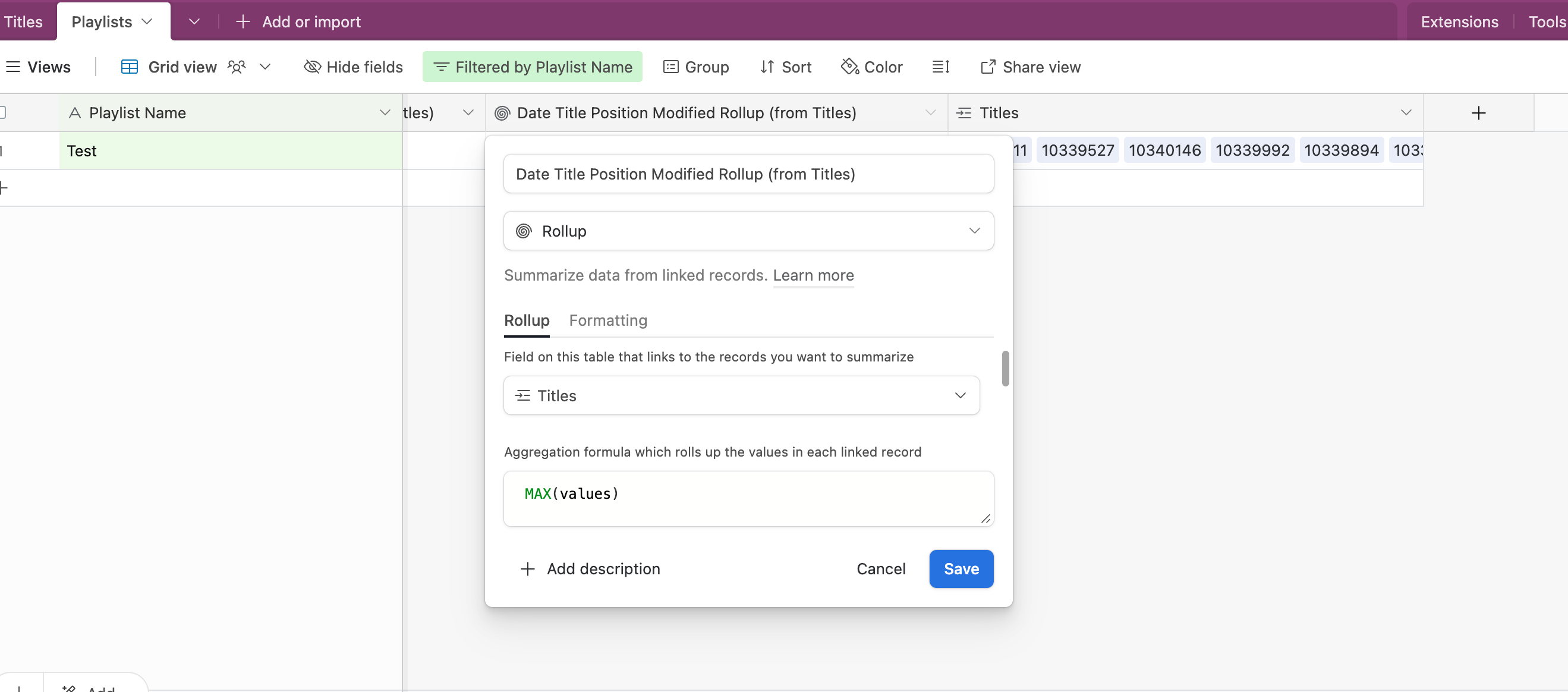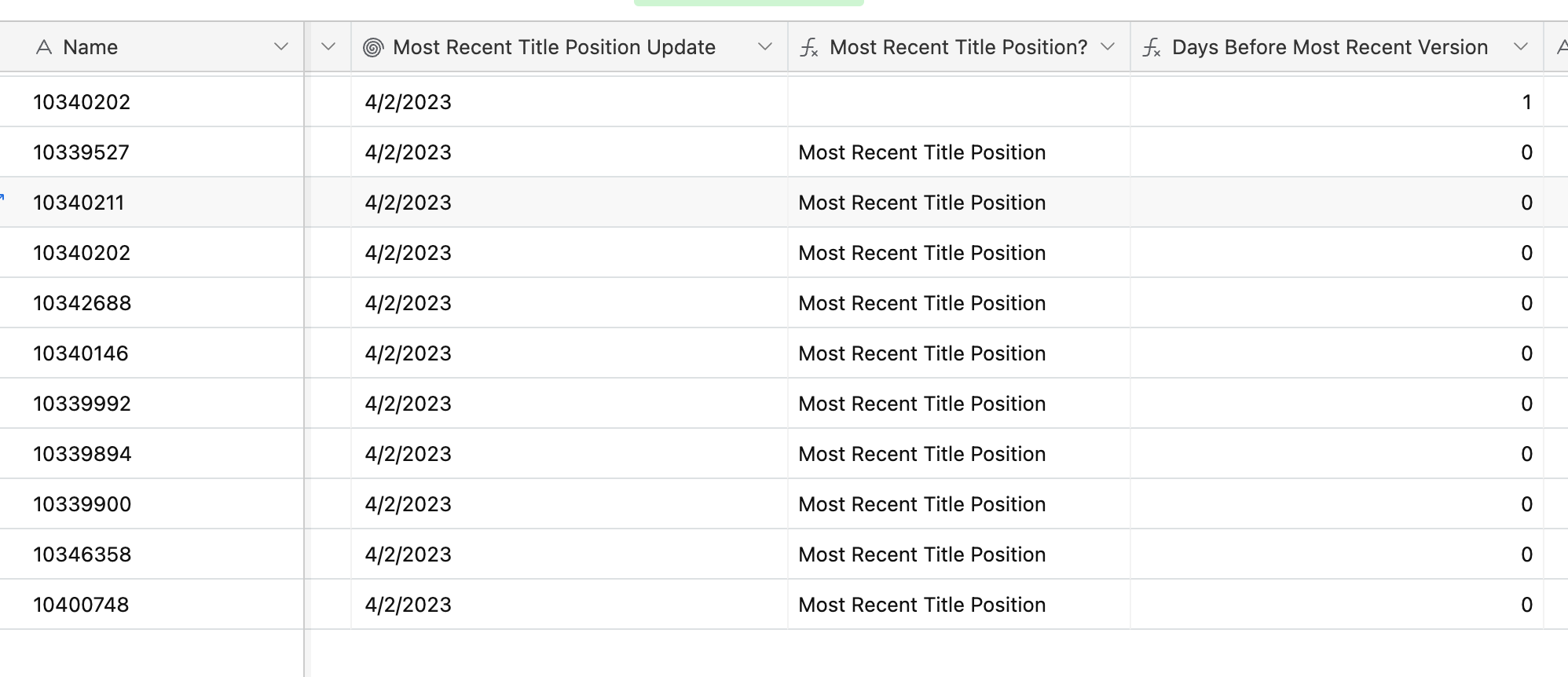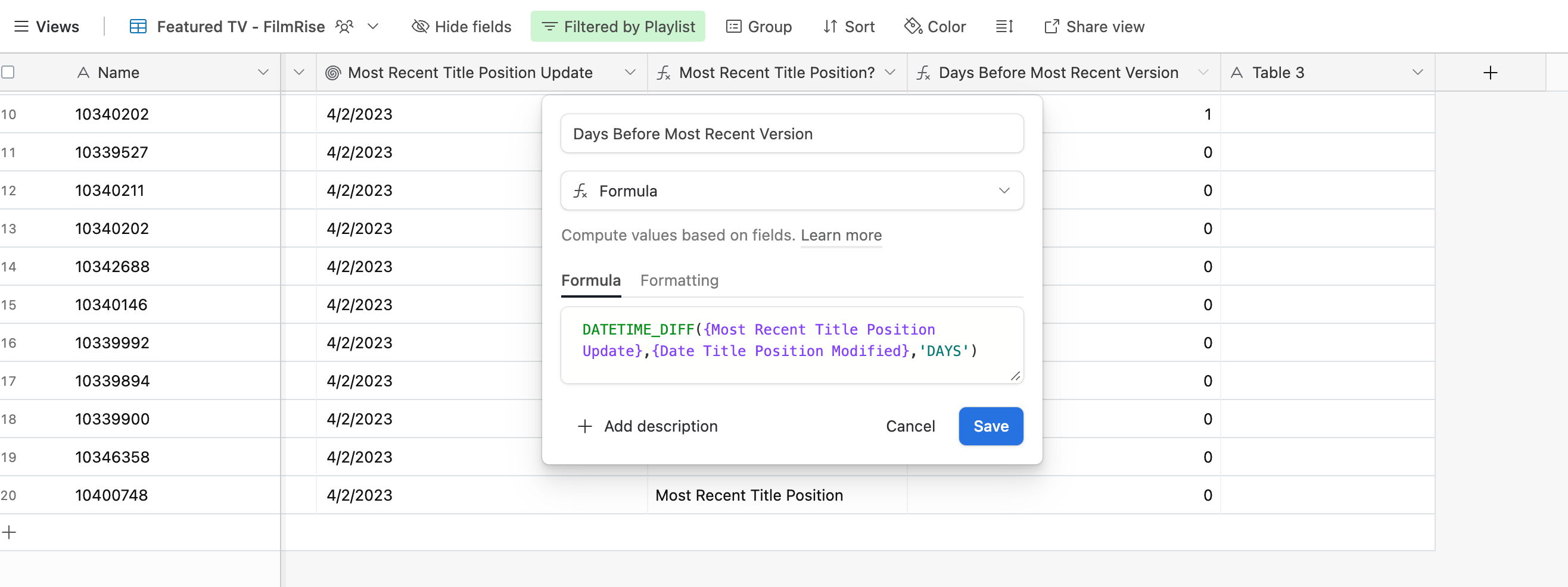Hello!
For our organization, I'm working on a view/interface to track changes to lists of content over time. We "merchandise" our content for users in sequential order; e.g. Row 1 of content contains Title A in Position 1, Title B in Position 2, etc... Each of our titles has a custom numerical ID, e.g. 10339894.
We frequently make changes to the order of titles in each list, based on user engagement with each piece of content. I'm looking for a way to build an interface or view that will easily track these changes over time. It also has to serve a dual purpose and be easily updatable – ideally, members of our organization could simply drop in the new order of titles in the existing table, date them, and be able to compare them to past iterations. As such, I'd like all permutations of titles and lists in one easy-to-wield table.
For now I've set up the records and fields as such. The list of Titles 1 –10 from 4/1/2023 includes all the same titles as the list from 4/2, but the titles on 4/2 have been re-ordered:
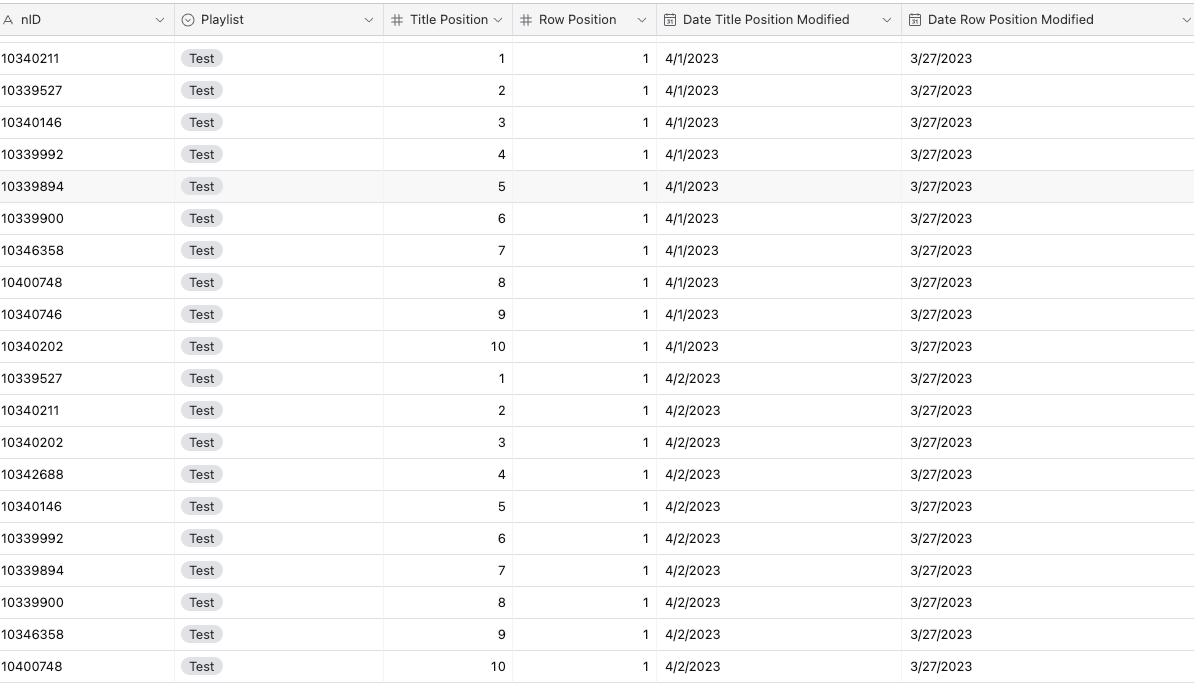
I've created a second linked table with some rollup views and linked back to this original table, to create these fields as well:
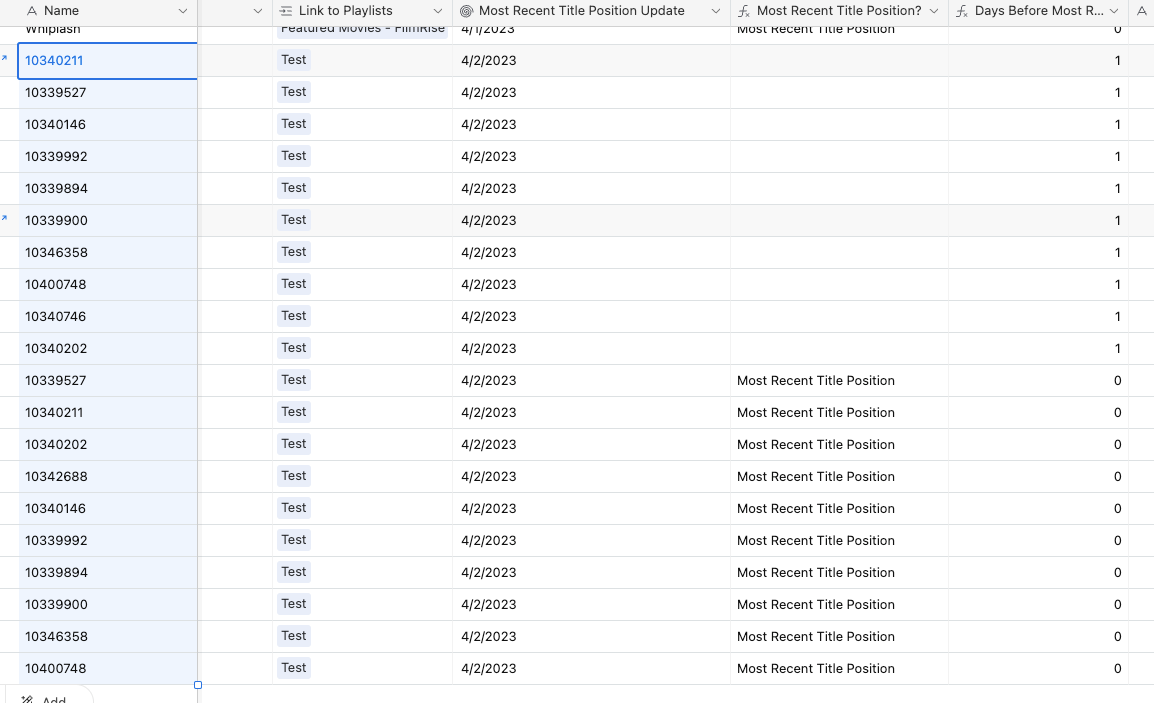
Lastly, I've managed to create this interface, which compares the current version of the list to the previous version.
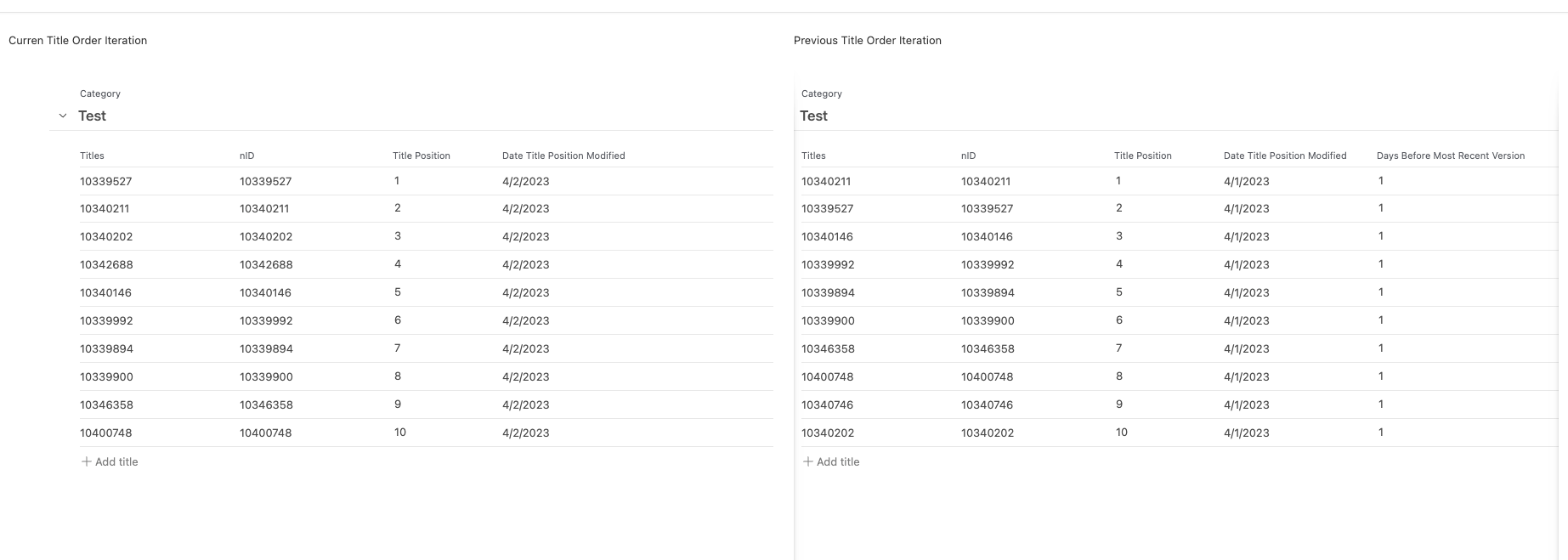
Here's where I'm stuck:
- I don't know how to make this interface easily filterable. Right now, the "Previous Title Order Iteration" is set up by a filter which references the "Days Before Most Recent Update" field, which is a calculation. A user will have to know exactly how many days it has been since the most recent update to be able to filter by this view. Meaning, if a user simply filters by "<1," it'll show all past versions of the list across multiple timestamps, instead of just a single iteration from a single day.
- I don't know how to easily show the "delta" between title positions. I'd like to add a column that shows, in the example above, Title 1 (10339527) moved up one position in the list since the last update. Basically a "Change DoD" calculation that demonstrates the difference in position for any one given title.
Any help would be super appreciated!




